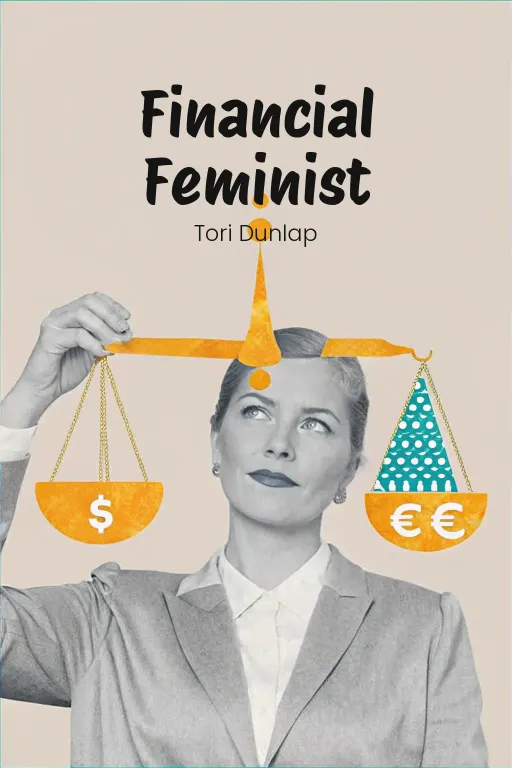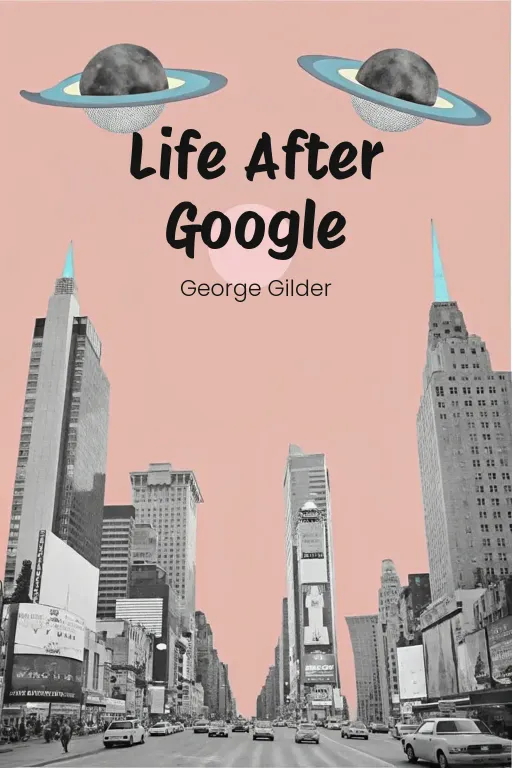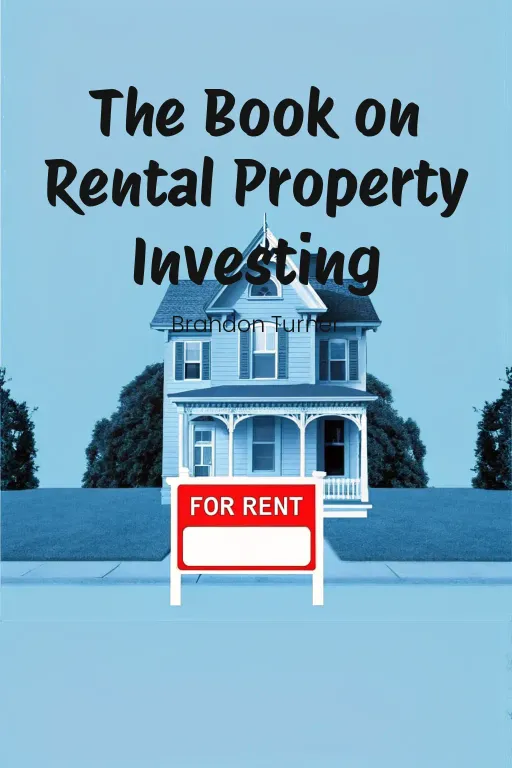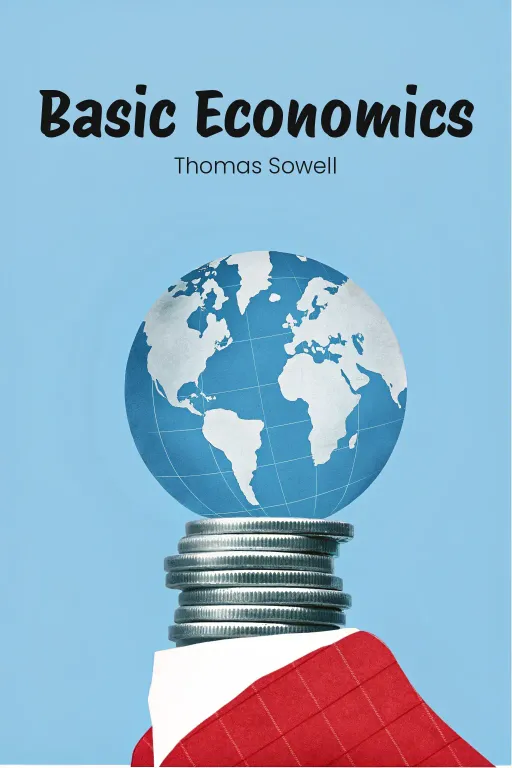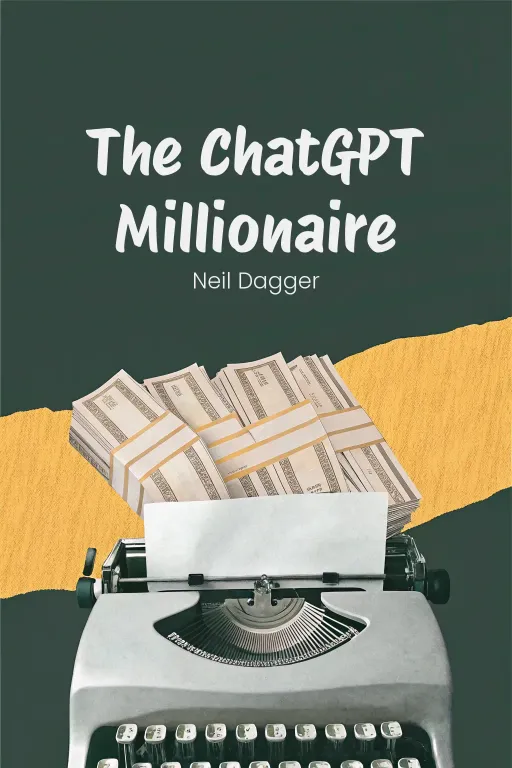
Startup Survival Guide: Beating Political Roadblocks
Podcast by Let's Talk Money with Sophia and Daniel
Saving Startups from Death by Politics
Introduction
Part 1
Daniel: Hey everyone, and welcome to the show! Today, let's talk about something nearly every innovator faces. You know, you've built a killer app or service—something truly disruptive—and bam! You slam into a wall. But it's not tech or funding; it's politics. Red tape, old laws, powerful people who just don't want change. Sound familiar? Sophia: Oh, does it ever, Daniel. It's the classic underdog story, only this time David has a killer app, and Goliath is a mountain of regulations, lobbyists, and vested interests. Basically, the stage is set for today's conversation. Daniel: Exactly! We're diving into Bradley Tusk's eye-opening book, The Fixer: My Adventures Saving Startups from Death by Politics. Tusk is a strategic advisor—a behind-the-scenes power player, really—who's helped startups like Uber, FanDuel, and Lemonade navigate the sometimes brutal world of government and regulation. The book is part memoir, part playbook, and packed with insights on how to fight—and win—political battles in the tech arena. Sophia: Right, and the interesting thing is, this isn't just about startups complaining, it's about them reshaping whole industries, from transportation all the way to insurance. That means they're colliding head-on with city halls, unions, and even public sentiment. But surely there's always a price to pay, right? Daniel: Absolutely. So today, we'll break down three key areas. First, we'll talk about why startups simply can't ignore politics. Sitting on the sidelines can kill even the best ideas. Sophia: Next, we’re diving into the art of persuasion. Whether it's rallying public support or finding the right allies, startups need to become masters of storytelling. Daniel: And finally, we'll look at the delicate balance of aggressive advocacy. How do startups push boundaries without crossing the line and losing public trust, you know? It's a tightrope walk between innovation and ethics. Sophia: All wrapped up with real-world examples, from Uber taking on the taxi industry in New York to Lemonade challenging insurance regulations. Let's pull back the curtain on the political strategies being some of tech's biggest battles.
Political Engagement as a Survival Strategy for Startups
Part 2
Daniel: Alright, let's dive right in . I think it's crucial for startups to understand that political engagement isn't optional when you're trying to shake things up . Tusk really nails it: political strategy is as vital as your business model . Sophia: Exactly, Daniel . You can have the sleekest code and the most funding, but you'll hit a brick wall if regulators come after you unexpectedly . But here's the thing, why do so many startups, especially in the beginning, just ignore this aspect? Daniel: Well, it's a mix of naivete and optimism, really . Founders are so hyper-focused on building and scaling that politics feels like a distant problem, something they'll deal with “later.” But Tusk's point is, you can't afford to keep politics on the back burner because incumbents won't just stand by as you disrupt their world . Sophia: Right . And those incumbents? They are masters at using legislation to kneecap startups . Just look at what the New York City taxi industry did to Uber, for instance . Daniel: Absolutely, that's the perfect example . The Uber versus taxi industry battle is textbook to show why startups need to be politically engaged as soon as they enter a regulated market . Travis Kalanick had this very bold vision of on-demand rides, and millions loved it . But, predictably, the existing taxi industry wasn't thrilled about it . Sophia: Understandably so ! The taxi industry was not just unhappy—they were directly threatened . Decades of an established system, where medallions were basically gold for their owners, suddenly under siege . And they had, you know, connections to lobbyists and city hall, all the right people to fight back . Daniel: They really did ! The taxi lobby pushed hard to curtail Uber's expansion . That's where Tusk came in . His initial move was to recognize that this wasn't just about ticking regulatory boxes . It was about shaping the narrative . For Uber to survive, Kalanick and Tusk needed to reframe the whole conversation . Sophia: They shifted the focus from "Uber versus the rules" to "innovation versus the status quo," correct? It became a question of sticking with old, inefficient systems or embracing new solutions that benefited actual people . Daniel: Precisely ! Tusk and his team flipped the script by focusing on public sentiment . They tapped into Uber's massive user base, gave them a voice—even using the app to contact legislators directly . Suddenly, it wasn't just Kalanick versus city hall . It was thousands of New Yorkers wanting better transportation options . Sophia: Okay, but let me play devil's advocate here . Turning users into activists—it was effective, sure—but is there a bit of an ethical question there? How much of that public outcry was real versus, you know, orchestrated? Daniel: That's a valid point . Mobilizing consumers is powerful, and it can definitely blur those lines . But, I mean, the taxi industry was fighting just as hard with its lobbyists . Narrative control is a game both sides play . Sophia: True . And I think Uber's argument resonated because it wasn't just spin for their own benefit . They were essentially solving real urban problems—shorter wait times, better access, and creating jobs for drivers, let's not forget . Daniel: Exactly ! And that public alignment gave Uber leverage against those hostile regulations . It's a case study in how startups need to win over not just customers, but also public opinion . Sophia: Still, it wasn’t all smooth sailing for Uber, right? This political strategy, while effective, also invited scrutiny . Behind the scenes, there were still tough conversations happening around driver pay, worker protections, and corporate accountability . Daniel: Definitely . And that’s part of why Tusk’s insights are so valuable . His approach wasn’t just about bypassing regulations, but about playing a long game where startups could address these challenges—all while staying afloat . Sophia: Which leads us perfectly to the proactive side of his playbook, right? Tusk didn’t just wait for things to blow up . He advocated for founders to build connections and relationships before entering difficult markets . Don’t wait to be bitten by the rules, anticipate them . Daniel: Right . Tusk emphasizes that political engagement isn't just about firefighting, it can be a strategic advantage . Shaping the narrative, rallying public support, and direct lobbying—these are all things startups need to master to survive in regulated spaces . Sophia: And that last one—direct lobbying—it requires a delicate touch . You can't just storm into city hall swinging a bat . It's about building relationships, tailoring your message, and finding common ground with policymakers . Daniel: Exactly . The Uber story shows startups that disruption is as much about navigating the political landscape as it is about tech innovation . Disruption brings resistance, and resisting requires a strategy . Sophia: So startups need to ask: How do we turn political hurdles into opportunities? And how do we shape our image to appeal to both customers and regulators? Daniel: And that, Sophia, that’s the challenge—and, honestly, the excitement—of innovating in regulated industries . Tusk’s strategies offer a roadmap for turning obstacles into opportunities .
Building Political Narratives and Strategic Alliances
Part 3
Daniel: So, this “really” highlights how crucial it is for startups to control their own narratives and form alliances to boost their political influence. Essentially, it all starts with being able to shape the story that's told about you. It's not just about avoiding misinformation, it’s about portraying yourself as the hero of the disruption you’re creating. Sophia: Exactly, and Tusk doesn't mince words, calling it a necessity. But Daniel, controlling the narrative sounds straightforward, like hiring a PR firm to generate positive headlines. What does it actually mean in practice? Daniel: It's much more strategic than just PR. Tusk argues, and I agree, that it means shaping how people – whether lawmakers, the media, or the public – view the problem you're solving and why it matters. It's about being proactive, not reactive. Take Mike Bloomberg's mayoral campaigns, for instance. Sophia: Ah, the self-proclaimed "data-driven savior" of New York City. Go on, I'm listening. Daniel: His campaigns were a masterclass in positioning. His team created this narrative that he was the only viable candidate with the skills and pragmatism to handle New York's problems. They didn't just defend against criticism; they anticipated it. Sophia: So, if critics called him "cold" or out of touch, his team would counter with stories about efficient governance and decisive leadership? Daniel: Precisely. Preemptive storytelling. They saturated the news with positive portrayals, making it harder for dissenting voices to gain traction. For startups, the lesson is this: don't wait for opponents – taxi lobbies or regulators – to define you. Establish your value proposition early and loudly. Sophia: And Uber's playbook reflects this. They positioned themselves as modern-day Robin Hoods, fighting for the common good against outdated taxi companies. But narrative control alone isn't enough. Alliances are where things “really” get powerful. Daniel: Exactly. Building alliances isn't just about survival; it's about shared strength. Tusk illustrates this with the bipartisan approach after 9/11. Sophia: You’re talking about Hillary Clinton and Chuck Schumer joining forces against Trent Lott, right? That $20 billion recovery package was a tough sell, if I remember correctly. Daniel: Absolutely. Lott wasn't keen on approving such a large expenditure, especially when it benefited New York City leadership with different political views. But Clinton and Schumer realized that standing alone wouldn't work. They united, setting aside political rivalries to present a united front. Sophia: And their message wasn't just "New York needs money," was it? They linked it to a broader, emotional national narrative about rebuilding after a tragedy. Daniel: Precisely. Their coalition-building was supported by a media strategy that emphasized unity, healing, and shared purpose. The result? Bipartisan approval in a highly divided Senate, and a renewed vision for what collaboration could achieve. Sophia: But Daniel, startups don't have 9/11-level crises to rally people around every time they face regulation. How do they build coalitions in less dramatic situations? Daniel: It's about identifying shared incentives. For example, when Lemonade entered the insurance space, they didn't face their challenges alone. They partnered with regulators, sharing the goal of creating a simpler, more transparent system that consumers would trust. They aligned their messaging with regulators' priorities – and gained allies instead of roadblocks. Sophia: But even coalitions can't escape bad press if you can't communicate your story effectively. Tusk makes that clear when he discusses Uber's fight with Bill de Blasio. Daniel: That battle was epic. De Blasio tried to limit Uber's growth to one percent – crippling their business model – and Uber responded with a media blitzkrieg. Sophia: Right! They didn't just rely on behind-the-scenes lobbying. They engaged riders, sending alerts through the app and, in effect, launching campaigns from users' smartphones. Daniel: And every aspect of that campaign was tied to emotion and progress. Digital ads showed immigrant drivers struggling to make ends meet, suggesting that the cap would devastate livelihoods. Social media portrayed de Blasio as someone stuck in the past, opposing innovation. And, most importantly, they made New Yorkers feel that taking an Uber was a form of rebellion against inefficiency. Sophia: It's brilliant because they understood what would resonate with people. Consumers wouldn't rally for a corporate bottom line, but they would for immigrant drivers and the promise of better transportation, especially in underserved areas. Daniel: That emotional resonance is key. By tailoring the narrative to values like fairness and progress, Uber was able to rally public sentiment. The opposition – the taxi lobby and policymakers – struggled to make their case because no one wanted to be seen as obstructing progress. Sophia: But here's where I struggle with the Uber playbook. Is it ethical to manufacture outrage like that? You're mobilizing real people with real stakes, but you're also filtering the story to serve your own objectives. Daniel: It's a valid point. Narratives simplify complexity. Uber dramatized the issues for their own reasons, but remember, established systems use narratives too. The taxi lobby wasn't passive. They rallied regulators and portrayed Uber as a corporate villain exploiting loopholes. Sophia: So startups have to fight fire with fire? Daniel: Exactly. And when it's done transparently, with clear communication of what's at stake, it's not manipulation – it's advocacy. Tusk emphasizes that the power to frame your story isn't inherently good or bad; it's how you use it. Sophia: What strikes me is that startups need a delicate balance of strategy, timing, and authenticity when using these tactics. It's not as simple as sending out a few press releases. Daniel: No, it's not. You need to understand your audience – the public, regulators, the media – and engage them across multiple channels in a way that resonates deeply. If startups want to survive regulatory challenges, they need to understand that technology is the spark, but strategic positioning fuels the fire. Sophia: Because, in the end, it's not just about how innovative your idea is, but how well you can convince the world that innovation is worth defending.
Navigating Regulatory Dynamics and Ethical Advocacy
Part 4
Daniel: So, all of this leads us to how startups can actually “deal” with regulations. It's really about navigating those tricky regulatory waters while sticking to your ethical guns. It's a balancing act every disruptive company has to master. Let's lay out a roadmap, yeah? First, we'll look at the challenges, then dissect Lemonade's ethical advocacy, and finally, pull out some key lessons for future political strategies in the innovation space. Sophia: A deep dive, huh? Because “ethics,” Daniel, can feel like this constantly shifting thing, especially in these kinds of discussions. Startups are taking on these huge, slow systems, and if they push too hard, they can come off as, I don't know, predatory or reckless. It's a real tightrope walk. Daniel: Absolutely, Sophia. So, first up, the challenges. Startups have to learn how to navigate regulations just to survive. Unlike the big guys who've been around forever, startups are, by definition, doing something new, right? And “new” always shakes things up. But these older systems – the regulations, industry norms, bureaucracies – they rarely welcome that disruption with open arms. Look at Lemonade. Their AI model was the opposite of traditional insurance. That meant they were wading into a world of outdated regulations and glacial bureaucracies. Sophia: Right, Lemonade. They were trying to sell this crazy idea: an AI-powered insurance company that streamlined payouts and slashed costs. Makes total sense when you put it like that. But I'm sure the established players – and, let's be honest, a lot of the regulators – weren't just "resistant." They were likely outright hostile. Daniel: Exactly! They were trying to simplify insurance in a way that directly threatened the old guard. And their biggest obstacle wasn't customers being skeptical; it was the New York Department of Financial Services' licensing process. It was like running into this opaque, stuck-in-the-mud bureaucracy. Sophia: So, we're not just talking red tape here; we're talking industrial quicksand. Do you think startups underestimate how deep these issues go? Like, they look at the rules and think they're playing the same game as everyone else? Daniel: Definitely. I think most startups only realize they're in a totally different game when they're already sinking. Lemonade definitely learned that lesson fast. Those licensing delays weren't just a pain; they could have sunk the whole company. Waiting for the DFS approval put their whole market entry timeline at risk, and they couldn't afford to just sit around. Tusk made it clear: these legacy systems aren't meant to accommodate disruption; they're built to maintain the status quo. Sophia: Which the incumbents happily weaponize. Let's be real, those delays weren't happening in a vacuum. The established insurance companies weren't just twiddling their thumbs while Lemonade tried to change everything. There had to be pressure being applied behind the scenes. Daniel: Oh, 100%. Regulators are always being influenced, directly or indirectly, by lobbyists and established players. For Lemonade, that bureaucratic swamp wasn’t a random thing; it was a natural symptom of challenging the system’s very foundations. And that's where their ethical advocacy came in. Sophia: So, they had to get aggressive and defend themselves without getting their hands dirty. What exactly did Lemonade do? Daniel: When Lemonade and Tusk realized how serious the threat was, they shifted gears and started building this public and political narrative that blamed their problems on inefficiency and bureaucracy, not on their business model. So, they reached out to Governor Andrew Cuomo and reframed the issue. It wasn't just about them; it was about how outdated systems were holding back progress. Sophia: Classic framing trick: "It's not just about us; it's for the greater good, really!" And, I mean, Daniel, threatening to move operations to London probably helped their case a little bit, right? Daniel: It definitely had an impact. But the important thing is how they did it. It wasn't just a bluff; it was a way of highlighting how dysfunctional New York's regulatory environment had become. They weren't just saying, "Approve us, or we'll leave." They were saying, "Fix this system before it drives all innovation away." Sophia: Oof, that's a big move. A calculated and politically savvy one. And, just like Uber tapped into public sentiment with its riders, Lemonade reinforced its image as a consumer-focused disruptor, right? Daniel: Exactly. They hired a lobbyist who really understood New York's regulatory and political scene. They aligned Lemonade's goals with the governor's focus on economic growth and job creation. At the same time, they pushed public narratives pointing out how their model could save consumers money and modernize an outdated industry. By portraying themselves as an innovation-friendly company that was on the consumers' side, they kept regulators under pressure. Sophia: And it worked. The licensing process suddenly sped up. But, Daniel, was this approach completely above board? Like, using public narratives and hiring lobbyists… it's effective, but does it always sit comfortably within the ethical boundaries Lemonade was promoting? Daniel: That's such a crucial question, Sophia. And for Lemonade, it really came down to intention and transparency. They made bold moves, but they weren't acting underhandedly. The way they used narratives to challenge systemic problems showed that startups can advocate for themselves while also serving the public interest. Sophia: Okay, that takes us to the lessons startups can learn from this. What's the biggest takeaway for future innovators staring down the barrel of a regulatory gun? Daniel: For me, it's about really understanding your value proposition and making sure it aligns with the public good. Tusk talks all the time about framing your mission as benefiting society. Lemonade didn't just present themselves as another tech company. They tried to be seen as reformers in an industry known for leaving consumers in the dark. That's how you build political goodwill. Sophia: And that goes hand-in-hand with using political pressure wisely, right? Lemonade played hardball – threatening to leave – but they didn't overdo it. They put enough weight behind their demands without going too far. That's a critical balance startups need to strike. Daniel: Absolutely. Two more lessons really stand out to me. First, find good intermediaries. Having lobbyists or advocates who know the local political landscape is invaluable. And second, you need to find that sweet spot between being bold and being ethical. Advocacy requires action, but it's most effective when it's rooted in fairness and transparency. Sophia: And let's not forget the bigger picture. Lemonade's success wasn't just a win for one insurance startup; it set a precedent for how innovation and the public interest can challenge broken systems. Disruptors don't just have to beat the odds; they can help shift regulatory frameworks to make way for progress. Daniel: Exactly. Lemonade raised the stakes without losing sight of their values. By advocating for innovation while staying ethical, startups can pave their own regulatory path and even help drive broader institutional change.
Conclusion
Part 5
Daniel: Okay, so as we wrap up today, we've really dug into some key takeaways from Bradley Tusk's “The Fixer”, right? From Uber's pretty aggressive political plays to Lemonade's more measured approach to regulations, it's clear that startups just can't afford to ignore the political landscape. They almost have to fight on two fronts: pushing innovation and also navigating all that bureaucratic red tape. Sophia: Right, and it's not just about reacting when things pop up. It's about really taking control of the story, building the right strategic alliances, and, you know, balancing being super aggressive with maintaining some ethical standards. I guess success really depends on how well a startup can position itself as a force for progress, not just about profits, huh? Is it that simple? Daniel: Exactly. So, here’s what it boils down to: Innovation just doesn't happen in a bubble. If you're building something truly disruptive, you're going to face resistance, period. So, the trick is to treat politics with the same strategic thought you put into your business plan. Control your narrative, get the right allies, and don't be afraid to really engage with the regulators and the lawmakers. That’s how you turn those roadblocks into advantages. Sophia: Okay, so here’s a question for our listeners to chew on: What do you think about Startups diving into the political arena? Is it a smart move, or are they overstepping? Either way though, as Tusk’s book shows, just sitting on the sidelines really isn’t an option if you want to survive, let alone thrive.




